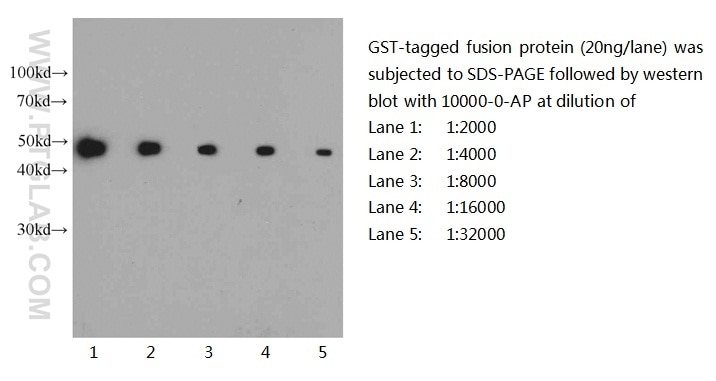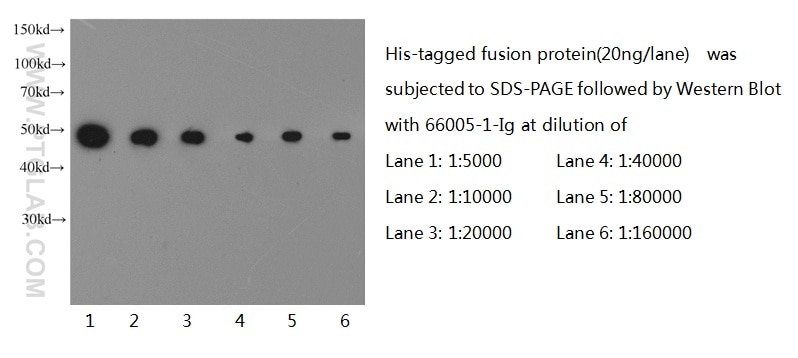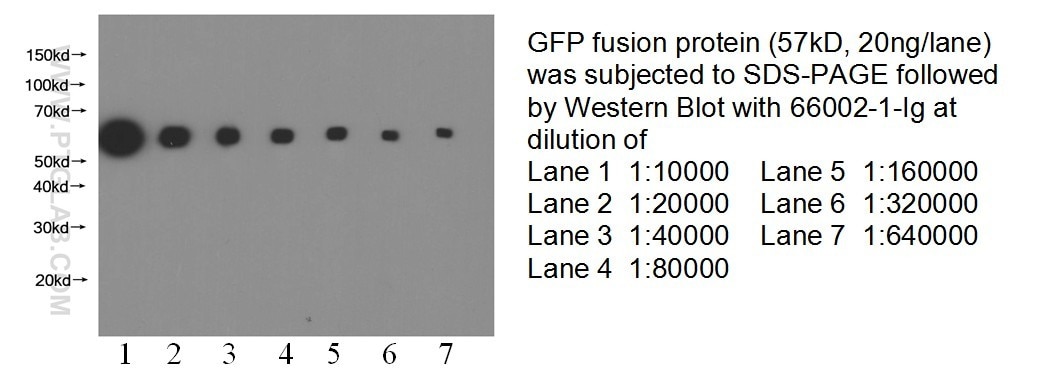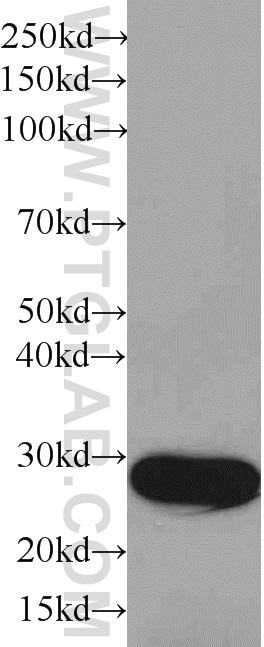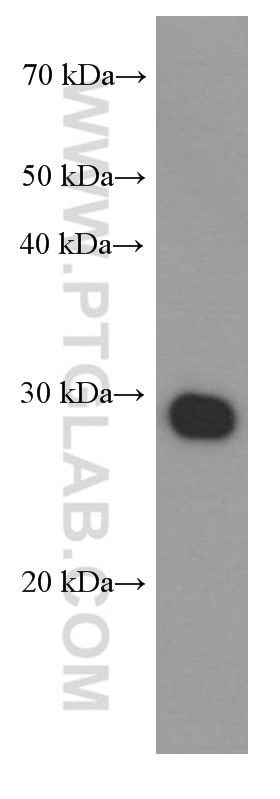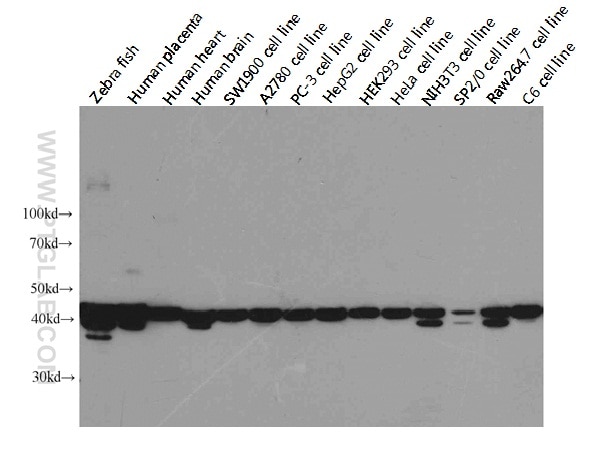GST tag Monoclonal antibody
GST tag Monoclonal Antibody for ELISA
Host / Isotype
Mouse / IgG2a
Reactivity
recombinant protein, schistosoma japonicum and More (1)
Applications
WB, IP, CoIP, ELISA
Conjugate
Unconjugated
CloneNo.
3B5F8
Cat no : 66001-1-Ig
Synonyms
Validation Data Gallery
Recommended dilution
| Application | Dilution |
|---|---|
| It is recommended that this reagent should be titrated in each testing system to obtain optimal results. | |
| Sample-dependent, Check data in validation data gallery. | |
Published Applications
| WB | See 30 publications below |
| IP | See 6 publications below |
| CoIP | See 3 publications below |
Product Information
66001-1-Ig targets GST tag in WB, IP, CoIP, ELISA applications and shows reactivity with recombinant protein, schistosoma japonicum samples.
| Tested Reactivity | recombinant protein, schistosoma japonicum |
| Cited Reactivity | human |
| Host / Isotype | Mouse / IgG2a |
| Class | Monoclonal |
| Type | Antibody |
| Immunogen | Recombinant Protein |
| Full Name | GST tag |
| Calculated Molecular Weight | 26 kDa |
| GenBank Accession Number | FN315687 |
| Gene Symbol | |
| Gene ID (NCBI) | |
| Conjugate | Unconjugated |
| Form | Liquid |
| Purification Method | Protein A purification |
| Storage Buffer | PBS with 0.02% sodium azide and 50% glycerol pH 7.3. |
| Storage Conditions | Store at -20°C. Stable for one year after shipment. Aliquoting is unnecessary for -20oC storage. 20ul sizes contain 0.1% BSA. |
Background Information
Protein tags are protein or peptide sequences located either on the C- or N- terminal of the target protein, which facilitates one or several of the following characteristics: solubility, detection, purification, localization and expression. GST(Glutathione S-Transferase) is a widely used protein tag encoded by the Schistosoma japonicum. GST provides both an easily detectable tag and a simple purification process with little effect on the biological function of the protein of interest. Antibodies to GST are useful for checking protein expression both in plaques and on Western blots as well as for immunoaffinity purification of proteins expressed in cells. This antibody recognizes the GST-tag fused to either the amino- or carboxy-terminus of targeted proteins.
Publications
| Species | Application | Title |
|---|---|---|
Nat Microbiol Ephrin receptor A2 is an epithelial cell receptor for Epstein-Barr virus entry. | ||
Cell Res Excessive UBE3A dosage impairs retinoic acid signaling and synaptic plasticity in autism spectrum disorders. | ||
Mol Cancer SUMO1 modification of KHSRP regulates tumorigenesis by preventing the TL-G-Rich miRNA biogenesis. | ||
Cell Res Phosphatidylinositol 3,4-bisphosphate regulates neurite initiation and dendrite morphogenesis via actin aggregation. | ||
Nat Commun Inhibition of the CDK2 and Cyclin A complex leads to autophagic degradation of CDK2 in cancer cells. | ||
Nucleic Acids Res SUMOylation of YTHDF2 promotes mRNA degradation and cancer progression by increasing its binding affinity with m6A-modified mRNAs. |

